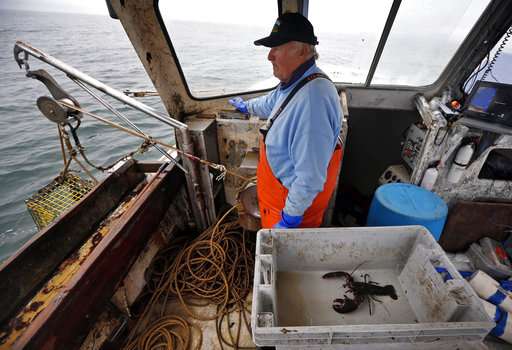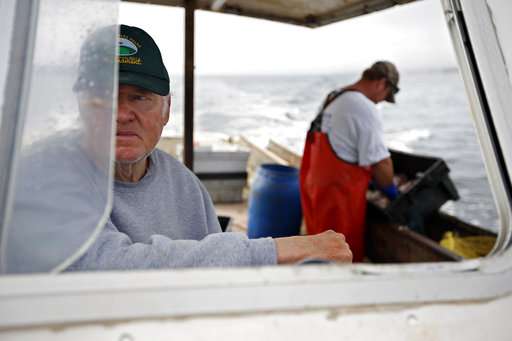New rules for lobstering in southern New England up for vote

New restrictions on lobster fishing are up for a vote early next week as regulators try to slow the loss of the valuable crustaceans from southern New England waters.
Scientists have said populations of lobsters off of Connecticut, Rhode Island and southern Massachusetts have declined as waters have warmed. A board of the Atlantic States Marine Fisheries Commission is scheduled to vote on new management measures Monday and Tuesday.
Fishing managers are considering tools like trap reductions, changes to the legal harvesting size of lobsters and seasonal closures to try to preserve the population. Some lobster fishermen have opposed the possibility of new measures, saying such a move would kill off what remains of a once-vibrant fishery.
"Any further reductions in traps would be hard to accommodate, given that there are so few fishermen left in (southern) Massachusetts and Rhode Island," said Beth Casoni, executive director of the Massachusetts Lobstermen's Association.
Most U.S. lobster is brought to shore in Maine, on New England's north end, and Canada's fishery also contributes a lot of lobster to American markets. Maine has had record high catches in recent years, and the price of lobsters to fishermen and consumers has been high, too. The U.S. lobster fishery was worth more than $620 million at the docks in 2015, a record, and Maine had a record year in 2016.

But it's a different story in southern New England, where the Atlantic States Marine Fisheries Commission has said the stock is at "record low abundance." A report from the commission says the poor condition of the stock results from "environmental factors, such as warming waters, and continued fishing mortality."
The commission is considering a set of possible new restrictions from a proposal it issued in May 2016. It is expected to choose which options it wants to implement when it meets early next week, and vote on them.
"They're picking which tools will be in the toolbox," said Megan Ware, fishery management plan coordinator with the committee.
The commission held several public hearings on the proposal in March around southern New England in places such as Derby, Connecticut, and Narragansett, Rhode Island.

© 2017 The Associated Press. All rights reserved.















